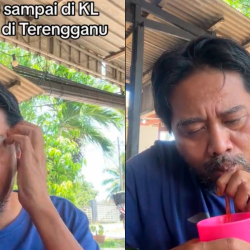UPDATE 2-EU criticises Poland, Hungary in first democracy report
* EU executive runs first report on democracy gaps across bloc
* Long-running rule of law battles come to head this year
* 1.8 trillion euros at stake (Adds EU envoys' decision on rule of law, EU lawmaker, detail)
By Gabriela Baczynska
BRUSSELS, Sept 30 (Reuters) - The European Union's executive criticised moves by Poland and Hungary to overhaul their judicial systems as a "major source of controversy" and "serious concern" in its first report on Wednesday about failings in the rule of law in the bloc.
The criticism of Hungary and Poland comes as the bloc aims to make access to EU money, including a new 750 billion euro coronavirus recovery fund, conditional on respecting the rule of law.
The report also focused on challenges to media independence and fighting corruption, saying the coronavirus pandemic served as a "stress test" of democratic resilience of the 27 EU states.
"Poland's justice reforms since 2015 have been a major source of controversy," the report said, adding that Hungary was also among member states where "the direction of change has given rise to serious concern about the impact of reforms on judicial independence."
Warsaw and Budapest are locked in long-running battles with the EU over undercutting democratic checks and balances through putting courts, media, NGOs and academics under more state control.
"The European Union was created also as an antidote to ... authoritarian tendencies," said the EU's top democracy official, Commissioner for Values and Transparency, Vera Jourova, who co-wrote the report.
Hungarian Prime Minister Viktor Orban this week called for Jourova to be dismissed after she said his vision of "illiberal democracy" was in fact spearheading the creation of an "ailing democracy" in Hungary.
The Commission rejected Orban's request.
Bulgaria, Romania, Croatia and Slovakia were also criticised in the report for shortcomings in ensuring judiciary independence. It noted corruption scandals in Bulgaria, Slovakia, Croatia, the Czech Republic, Hungary and Malta.
The report also said some governments' emergency measures to tackle coronavirus went too far in restraining the media and civil society's scrutiny of public decisions.
'VERY, VERY DIFFICULT NEGOTIATION'
Also on Wednesday, a majority of the EU's 27 countries approved a proposal by current chair Germany over how to make payouts from the bloc conditional on upholding the rule of law.
The proposal will underpin negotiations between member states and the European Parliament starting next month on measures governing 1.8 trillion euros in disbursements from the recovery fund and the bloc's next joint budget for 2021-27.
Sources said Poland and Hungary opposed the proposal, saying it went beyond what national leaders agreed last July. Sweden, Finland, Denmark, Belgium and the Netherlands meanwhile demanded tougher rule of law conditions.
That position is shared by the majority of EU lawmakers, whose consent is needed to get money flowing.
The European Parliament's member leading the file, Finland's Petri Sarvamaa of the centre-right European People's Party, told Reuters: "It's going to be a very, very difficult and tough negotiation."
The bloc's attempts to force Warsaw and Budapest to change tack on the rule of law have so far all but failed. The two shield each other from major punishement because the EU requires unanimity to suspend an offender's voting rights.
(Reporting by Gabriela Baczynska; Editing by Giles Elgood)






